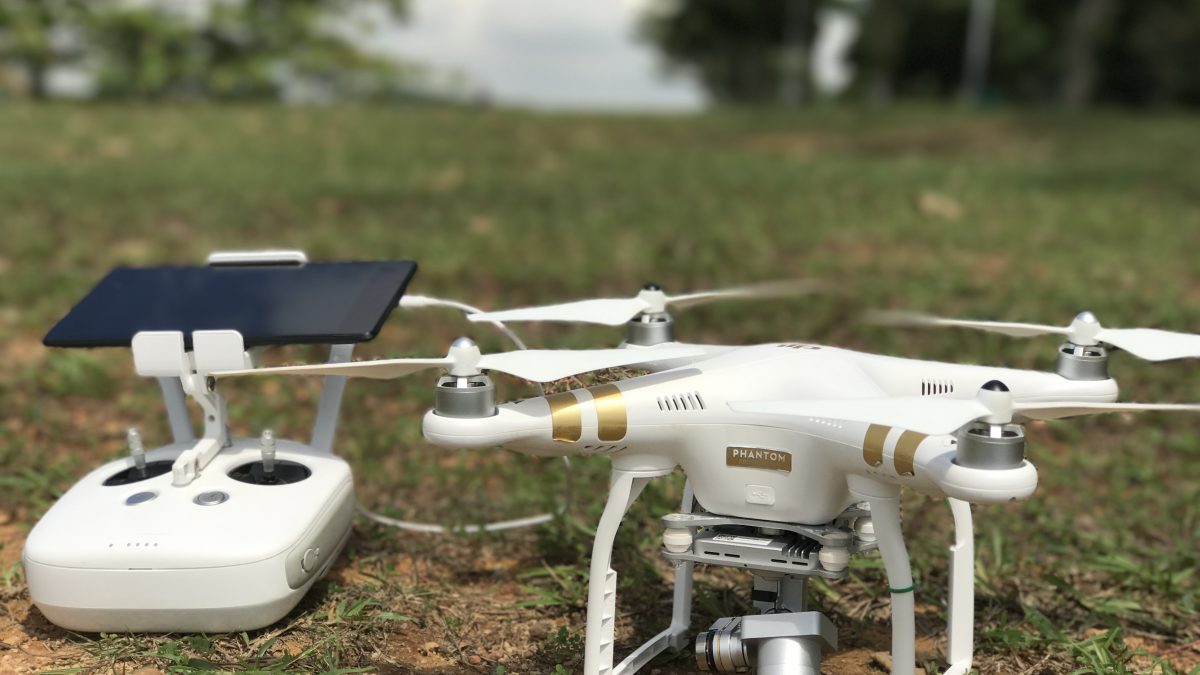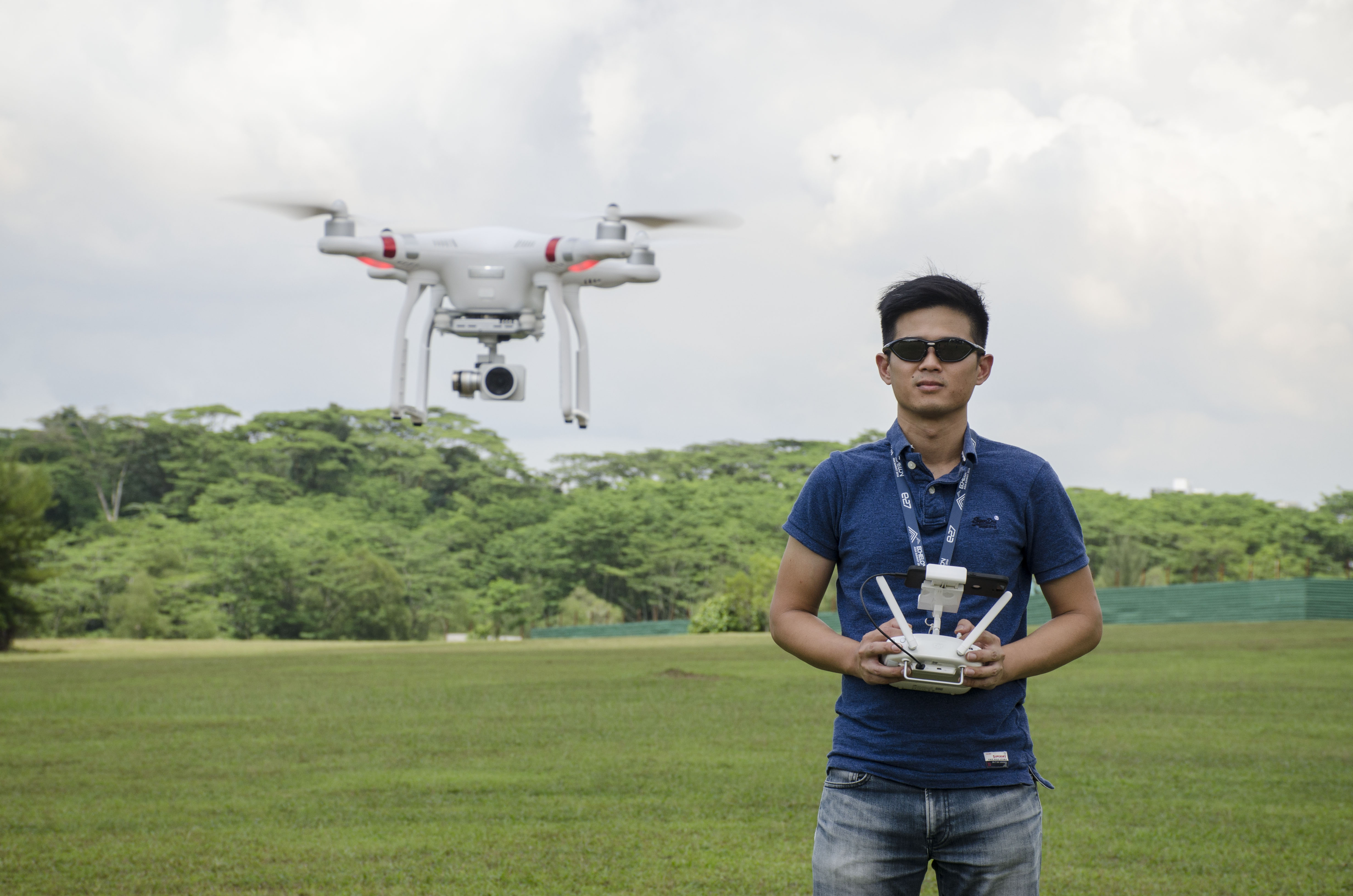Drone Piloting Skills are Hot in Demand

drone piloting skills UAV
DRONE PILOTING – a skill of the future has now become present for the common user. In the past, drones, also more technically known as unmanned aerial vehicles (UAVs), were only used in film making or in the military – but it has since become more affordable and available to the common user today.
Commercial services aside, users are taking to these aerial robots for personal recreational purposes and some epic content creation on their Instagram and Facebook feeds. Google #dronestagram and see for yourself.
Consumer drone shipments are expected to hit 29 million by 2021, according to Business Insider, BI Intelligence.

(Photo by Olivier Douliery-Pool/Getty Images – during the American Leadership in Emerging Technology Event in the East Room of the White House June 22, 2017 in Washington, DC)
Drones are creating jobs and business opportunities
In June of 2017, even US President Donald Trump and the White House hosted a group of tech leaders from top drone and wireless communications companies emphasizing on emerging technology to promote entrepreneurship, U.S. job creation and economic growth. A March 2013 report by the Association of Unmanned Vehicle Systems International (AUVSI) also reported a prediction of an estimated 100,000 jobs to be created in the U.S economy by year 2025.
The Trump Administration also announced in late October 2017 that help will be given to the federal government to create a set of drone regulations for commercial flights that may let companies like Google, Amazon, UPS and 7-Eleven provide drone delivery services. The introduction of drones is changing the business and job landscape.

(Image left: Pestbusters / Image right: TheBusinessTimes)
These changes are not just happening around the world, but here in Singapore too. Local pest control firm, PestBusters uses drones to view live footage of hard-to-reach areas such as roof gutters and bee hives. This helped the company to complete inspections in about one-sixth the time it previously took to do manual checks, while reducing the safety risk of their workers.
How about a flying taxi? Earlier this year, the Ministry of Transport explored the notion of aerial taxis – that’s right, levitating hovercrafts, as transport options for Singaporeans as a future possibility. Imagine seeing a “GrabDroneTaxi” option on our mobile Grab App!
The drone industry in Singapore is expected to grow exponentially especially with recent demand surges for UAVs in both private and public sectors. Singapore has also been acknowledged as Asia’s leading aviation hub. Businesses can use UAVs to perform aerial photography, mapping and videography services for sectors like agriculture and farming, oil and gas, construction, inspection and infrastructure, tourism, education and other possible sectors.
Businesses in Singapore can consider engaging services from a drone solutions provider if they do not yet have licensed drone pilots to do the job. These flying robots have become increasingly useful for meeting serious business needs.

Drone pilots are in demand
It is no wonder that drone piloting has of late, become one of the hottest trending skills to pick up. It is now possible to get paid piloting a drone on your job. In some industries, it may soon become a competitive essentiality for certain workers to add a drone pilot’s license to their CVs.
We are seeing more industries discovering the potential of using drones to service their business clientele. The possibilities are simply endless. More business owners and entrepreneurs need to be aware that having their own trained drone pilots will value-add to their services offered.
We took a sneak peek into a drone training session conducted by Garuda Robotics Academy, which provide training and help equip people to become professional drone operators.

(Image left to right: Nicholas Hon, Chief Pilot & Instructor at Garuda Robotics Academy, Sathieswaran Tanabal, trainee / Photo by: Jonathan Tan, NTUC This Week)
Trainee Sathieswaran Tanabal, 26, who graduated from the Queens University of Belfast with a degree in Mechanical Engineering, grew an interest in drones shortly after getting involved with the Air Scouts.
He shared his views on the training and hopes for his career. “Because of the initial high training cost, e2i’s partnership with Garuda to provide 50% subsidy definitely made it easier for me to sign up for it. It was difficult flying the drone at the beginning and I was nervous, but somehow you will get the hang of it – like learning how to drive a car. I would love to pursue a career in the aviation industry, and to contribute my drone piloting skills in my future workplace.”

(Image: Clifford Lee, 26, Assistant GIS Manager, Lee Boon Haw Registered Surveyor)
Another trainee, Clifford Lee, 26 is a current professional in a family-owned land surveying company ‘Lee Boon Haw Registered Surveyor’. He feels that the industry is now mature enough to incorporate this technology into their business.
“Our family business was started by my grandfather. After becoming aware of drone technology, the company sought to find out how we could incorporate them into our services, especially in collecting data from different aerial perspectives. Typically, for us to get a view of a building we would need to get roof access and send someone to climb up or go to a taller building nearby to do it. But with a drone you can just fly up and take a photo from there without having to attain permission for roof access, or risk safety. This could also help us in capturing aerial photos for 3D modelling. And with that, our clients can have a better understanding of the building and surroundings. In the future, we hope to be able to install laser scanners onto the drones and do more precise mapping for 3D modelling,”
“This course has been really informative and equips me with a framework on how to start off. Above learning flying skills, I also learnt about Singapore’s regulations in piloting a drone, safety issues, and scenarios we need to be aware of. I now understand how to attain an operator’s license and permits for various activities. This will help cut down time wasted in trial and error,” he shared.

(Image: Mark Yong, CEO & Co-Founder of Garuda Robotics / Photo by: Jonathan Tan, NTUC This Week)
Mark Yong, CEO / Co-Founder and a trainer himself at Garuda Robotics addresses the essentiality of this future skill.
“Drone flying is going to be a skill most people will want to have. Being a drone pilot may not be a dedicated job role, but rather something incorporated into a job. It is still quite a niche skill now, but will increasingly become more common as people use drones more for industrial purposes. We want to train as many people as possible. It doesn’t matter even if they go on to work for someone else, because we are trying to build up an eco-system of people trained with this skillset.”
Garuda Robotics have understood from their interaction with clients from different industries, that providing drones and developing drone data platform are only part of the entire solution for industries. Every product that they sell or software that they developed for their client is associated with the professional training necessary to leave their clients with a sense of comfort in utilizing this modern technology.
“We are glad to partner e2i and are grateful for the financial support and outreach to different sectors of Singapore that we may not have access to. It was vital to us that e2i recognizes this as an important future skill to invest in. It validates a lot of the messaging that we also try to bring out.” shared Mark.
[The Professional Multirotor Pilot Course is the foundational course of our Professional Pilot Training series. It is designed to prepare participants for the Unmanned Operator Permit (UOP) test administered by the Civil Aviation Authority of Singapore (CAAS)]
Visit: Garuda Robotics Academy’s website to find out more.
Story by: R. Lee



